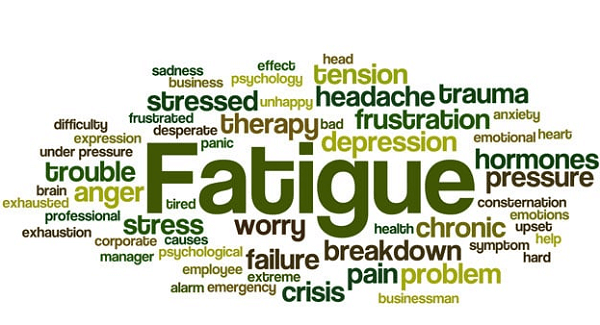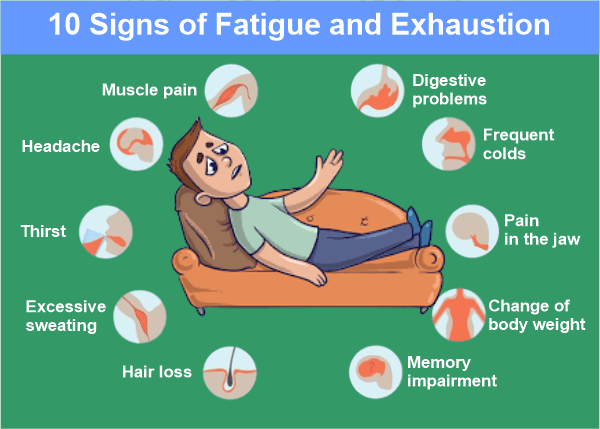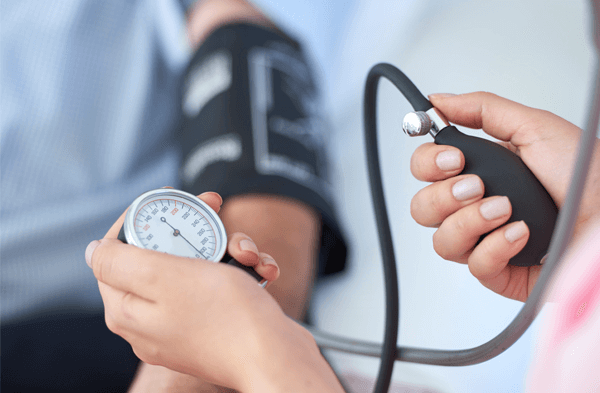Fatigue DefinitionA feeling or experience of being worn out, tired, weak, or short on energy is referred to as Fatigue. It might happen during or following regular activity. The difficulty in starting certain tasks might sometimes be a symptom of Fatigue. Contrary to feeling tired, weariness is frequently not cured by a good night's sleep. A vast range of minor to significant illnesses, syndromes, and ailments can all manifest as Fatigue. The causes of Fatigue include infections, inflammation, sleeplessness, trauma, cancer, chronic illnesses, autoimmune disorders, and issues with one's mental health. 
Regardless of age or demographic, Fatigue might occur. The elderly and those with chronic illnesses are, nevertheless, more likely to experience it. Depending on location, fatigue feelings could only last a short while before going away, such as after exercise or sleeplessness. In some cases, such as chronic fatigue syndrome (CFS), despair, or heart failure, it can also be chronic and continuous over a lengthy period. A dangerous or potentially fatal illness may show symptoms of Fatigue. Consult a doctor as soon as possible if your exhaustion persists despite healthy eating and sleeping habits. Consult a doctor immediately if you or someone you know is experiencing exhaustion combined with breathlessness, breathing problems, dizziness, or changes in awareness or alertness. Symptoms and IndicatorsIn addition to Fatigue, certain diseases, disorders, or conditions may also present with other symptoms. For instance, Fatigue brought on by hypothyroidism may combine with goiter, hair loss, dry or thin hair, or even loss of hair and significant weight increase (neck swelling due to thyroid gland enlargement). Excessive sobbing, difficulty sleeping, and neglect can be symptoms of depression-related Fatigue. There are several indicators of Fatigue, including:
Serious Signs and SymptomsSometimes, a condition like acute heart failure or gastrointestinal bleeding can be indicated by Fatigue and should be evaluated immediately in an emergency department. If you or anyone with you experiences any of these life-threatening signs, please seek emergency medical attention.
Fatigue Causes:
Many different illnesses, syndromes, and circumstances might make you tired. It includes Addison's illness, chronic tiredness syndrome, and low blood pressure (hypotension). Jet lag is one example of a moderate and temporary illness that can cause Fatigue. Serious or potentially fatal illnesses, such as cancer or organ failure. Chronic fatigue syndrome is characterized by Fatigue that lasts longer than six months, does not improve with rest, and is not brought on by a recognized physical or mental disease (CFS). Common Sources of FatigueSeveral common conditions can cause Fatigue, including:
Additional Reasons for Fatigue
Several additional illnesses, ailments, and conditions can cause Fatigue, such as:
Medications Causing FatigueAny medicine, including prescription, over-the-counter, herbal, or alternative remedies, should always be reported to your doctor. The following prescription drugs may contribute to Fatigue:
When Should You Consult a Physician About Fatigue?
Most fatigue-related reasons are not significant. Getting enough rest, managing stress, eating well, and staying hydrated can help with Fatigue. Make an appointment with your doctor if weariness lasts more than two weeks despite your best efforts. Additionally, if Fatigue is hampering your daily activities, consult your doctor. Sometimes visiting a doctor is the safest action to identify more serious causes. Immediately consult a doctor if Fatigue occurs along with: strong or persistent headache
When you're feeling fatigued, dial 911 or visit the local emergency room:
How do Doctors Determine the Primary Cause of Fatigue?An extensive medical history and physical examination are often the first steps in identifying the source of weariness. Your heart, lungs, nervous system, thyroid gland, belly, lymph nodes, eyes, ears, nose, and throat will all be thoroughly examined. Questions to Ask to Determine the Source of Your FatigueYour doctor may ask you various questions about your Fatigue to better understand your medical history, such as:
Your doctor could suggest testing based on your responses and the exam results. One example of this is:
A primary issue or disease may not always be easy to identify. Getting a second opinion may offer more information and answers if the issue persists and your doctor cannot identify the source. What Medications are Used to Treat Fatigue?The root cause must be addressed before treating Fatigue. The aim is to minimize the effect of tiredness on your quality of life or, if necessary, eradicate the source. One or more of the following might be part of your treatment plan:
Natural Fatigue TreatmentsGood sleep hygiene, which includes the following, can help those who are feeling fatigued:
Aim for 7 to 9 hours of sleep each night. Additionally crucial is eating a balanced diet, drinking enough water, and keeping your weight within reasonable limits. Various Methods of Treating FatigueSome persons with exhaustion may benefit from alternative therapies. Strategies consist of:
What are Some Possible Side Effects of Fatigue?Fatigue-related complications may develop gradually. When you feel sudden Fatigue, it's crucial to see your doctor immediately. Following the treatment strategy you and your healthcare practitioner particularly establish for you might help minimize potential problems, such as:
Next TopicGeography Definition
|
 For Videos Join Our Youtube Channel: Join Now
For Videos Join Our Youtube Channel: Join Now
Feedback
- Send your Feedback to [email protected]
Help Others, Please Share










